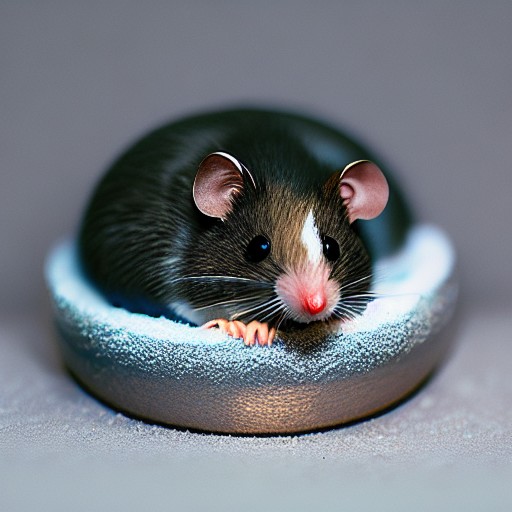Mice are small and fragile creatures that are vulnerable to many environmental factors, including temperature. When exposed to extreme temperatures, mice can experience a range of negative effects, from reduced activity levels to death. Within the scope of this article, I will investigate the question “Can a mouse die from cold?” and discuss the factors that influence the survival of mice in cold environments.
Can a Mouse Die from Cold?
Introduction: Understanding the Basics of Mouse Physiology
Before we explore the effects of cold on mice, it is important to understand the basics of mouse physiology. Mice are small mammals that have a high metabolic rate and a fast heart rate, which allows them to maintain a constant body temperature. Their small size also means that they lose heat more quickly than larger animals, making them more vulnerable to temperature changes.
How Low Temperatures Affect Mice
When mice are exposed to low temperatures, several physiological changes occur that can negatively impact their health and survival. These changes include:
Reduced activity levels
Mice exposed to low temperatures will often reduce their activity levels in an attempt to conserve energy. This reduction in activity can lead to a decrease in food intake, which can further compromise their health.
Hypothermia
Hypothermia occurs when the body’s core temperature drops below its normal range. In mice, hypothermia can lead to a range of symptoms, including shivering, lethargy, and decreased heart rate.
Frostbite
Mice exposed to cold temperatures for extended periods of time can develop frostbite, which occurs when the skin and underlying tissues freeze. Frostbite can cause tissue damage, and in severe cases, it can lead to the loss of limbs or digits.
Dehydration
Mice may become dehydrated in cold environments, as they may not have access to liquid water. Dehydration can lead to a range of health problems, including decreased organ function and lethargy.
Read also: Can mouse swim?
Factors That Influence Mouse Survival in Cold Environments
The survival of mice in cold environments depends on several factors, including:
Ambient temperature
The temperature of the mouse’s environment plays a significant role in their survival. Mice can survive in temperatures as low as 32°F (0°C), but prolonged exposure to temperatures below this level can be fatal.
Humidity
Humidity can also play a role in mouse survival in cold environments. High humidity can increase the risk of frostbite, as moisture on the skin can freeze more quickly.
Food availability
Mice require a constant supply of food to maintain their energy levels and body temperature. In cold environments, food availability may be reduced, which can compromise their health and survival.
Shelter
Shelter can provide mice with protection from the elements, which can increase their chances of survival. In cold environments, mice may seek shelter in burrows or other protected areas to conserve heat.
Conclusion: The Effects of Cold on Mice
In conclusion, mice are vulnerable to the effects of low temperatures, and exposure to cold environments can lead to a range of negative health outcomes, including reduced activity levels, hypothermia, frostbite, and dehydration. The survival of mice in cold environments depends on several factors, including ambient temperature, humidity, food availability, and shelter. By understanding the effects of cold on mice, we can take steps to protect these small and fragile creatures from harm.
FAQs
- Can mice survive in temperatures below freezing?
- Mice can survive in temperatures as low as 32°F (0°C), but prolonged exposure to temperatures below this level can be fatal.
- What are the signs of hypothermia in mice?
- Signs of hypothermia in mice can include shivering, lethargy, and decreased heart rate.
- How can I protect mice from cold temperatures?
- Providing shelter, food, and bedding materials can help protect mice from the effects of cold temperatures. You can also use heating pads or blankets to provide additional warmth.
- What should I do if I find a mouse that has been exposed to cold temperatures?
- If you find a mouse that has been exposed to cold temperatures, it is important to provide it with warmth and shelter. You can place the mouse in a warm, dry area and provide it with food and water. If the mouse is showing signs of hypothermia or frostbite, you should seek veterinary care.
- Can mice hibernate in cold temperatures?
- While some species of mice do hibernate, most species do not. In cold temperatures, mice may reduce their activity levels to conserve energy, but they do not enter a true hibernation state.
Overall, it is important to be aware of the effects of cold on mice and take steps to protect them from harm. By providing shelter, food, and warmth, we can help ensure the health and survival of these small and vulnerable creatures.











